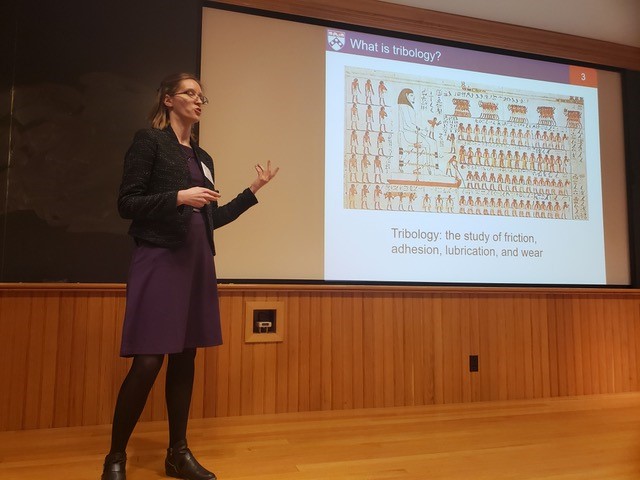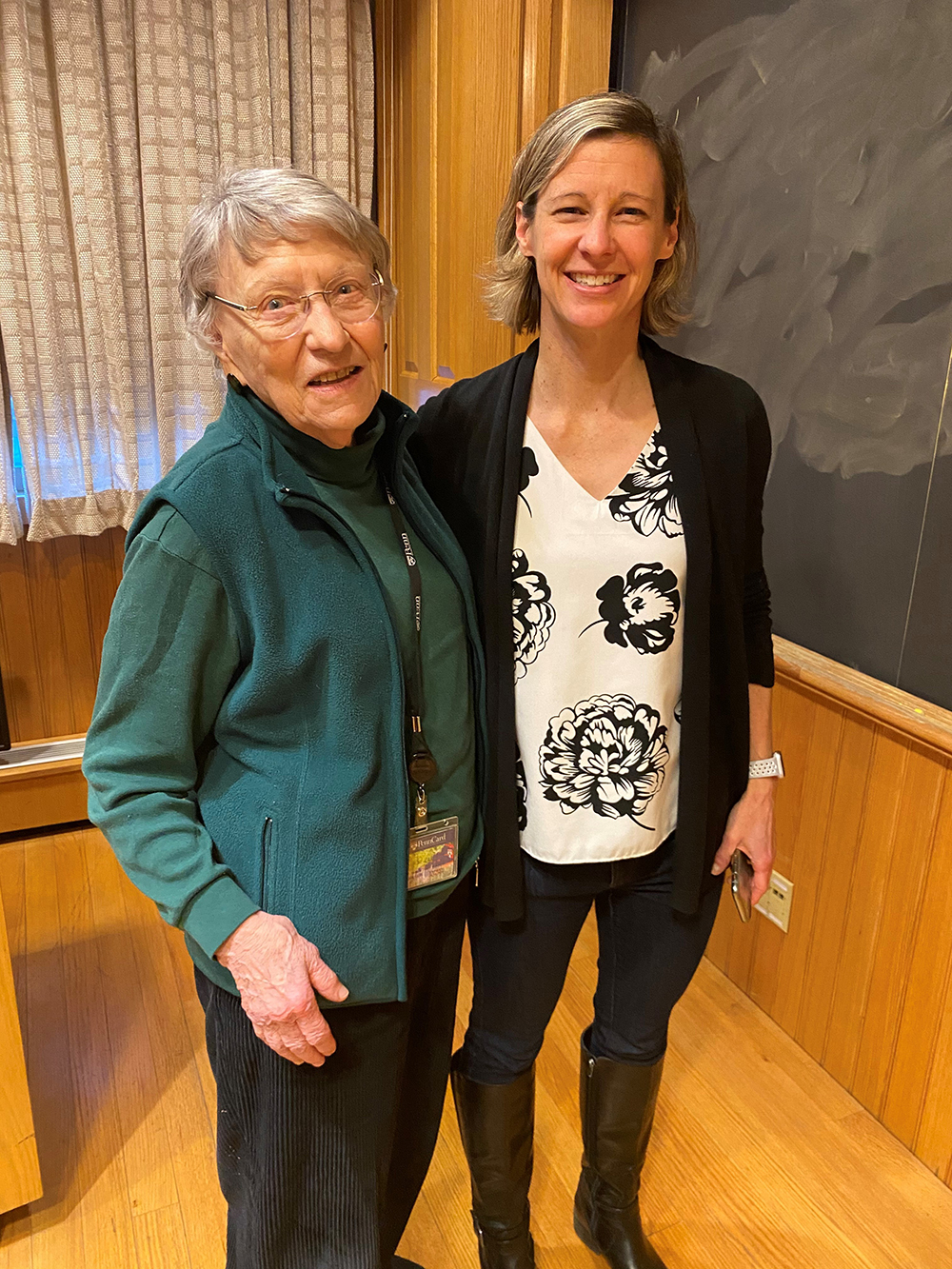To celebrate the International Day of Women and Girls in Science, the Women in Chemistry group hosted the “Women in STEM at Penn” symposium. In partnership with Advancing Women in Engineering, the Diversity and Inclusion in Physics group, the Penn Graduate Women in Science & Engineering (PGWISE), and the Graduate and Professional Student Assembly (GAPSA), the symposium featured research from students and faculty across campus. The daylong event also included networking opportunities, group discussions on issues faced by women in STEM, and career advice from faculty and keynote speakers.
Six graduate students each gave a 15-minute overview of her work, covering a broad range of topics and research areas that reflected the diverse group of attendees. From engineering, Ariella Mansfield shared her work on minimizing energy waste in magnet-powered millirobots, Erin Berlew discussed how to design new ways to study cell movement and cell signaling, and Kathryn Hasz presented the results of a study of friction in 2D nanomaterials.
From medicine, Jessica Hsu told about her research in radiology and nanomaterials, and Yekaterina Kori presented a newly developed method to quickly analyze post-translational modifications in histones as a potential diagnostic tool. Hannah Zeitler rounded out the student platform presentations with her fundamental research on small molecule activation to create new feedstock chemicals for industrial reactions.
Female faculty members were also invited to highlight their research and share insights into their career paths. Biochemist Kristen Lynch shared her long-time passion of understanding gene expression and encouraged students to find a scientific question that they themselves were fascinated to answer. “Ask yourself, ‘What science do you want to be doing in 10 years?’” Lynch said. “I followed science, and I was passionate about and surrounded myself with a great community. With that, you can go wherever you want.”
Materials scientist Cherie Kagan showcased some of her group’s collaborative work on nanocrystals and introduced the attendees to up-and-coming ideas in designing the next generations of materials with tunable properties at the atomic scale. Beth Winkelstein talked about detecting and treating pain and the challenges and opportunities of engineering new ways to diagnose and treat chronic neck pain. Andrea Liu shared her story on “learning by design” and how her group uses physics to create new materials using insights form biological systems.
Along with highlighting the work of female scientists at Penn, the goal of the symposium was also to help graduate students meet other researchers from across campus. “Meeting someone from another school is a great way to talk about issues we face together or to spark collaborations,” said Katherine Elbert, a graduate student in Chris Murray’s lab and a Women in Chemistry board member. To help attendees make these connections, the symposium featured networking opportunities.
Closing off a full day of presentations, networking, and small group discussions was a keynote presentation from Jen Heemstra, a biochemistry professor from Emory University who also writes a monthly advice column in “Chemical and Engineering News.” Heemstra first reflected on the importance of the day as a celebration of pioneering Women in STEM and thanked Penn’s own Madeleine Joullie for being one of those pioneers. “Thank you for being amazing,” Heemstra told Joullie, seated in the front row.
Heemstra also presented some highlights from her group’s research on biomolecules, like nucleic acids that make up DNA, to design and build new chemical structures for molecular diagnostics and biological imaging.
Heemstra also talked about imposter syndrome and said that everyone in science and research struggles with self-doubt in some form, usually at multiple points in their career. “We all feel alone in it, but in reality we’re all surrounded by it,” she said.
Beyond sharing science and celebrating pioneering women in STEM, the symposium organizers hope that this event helps connect students from departments across Penn and broadens their perspectives by providing a forum to hear about research and challenges.
It’s also the ideal place to start building up the supportive and collaborative networks that Heemstra and other faculty credited as being essential for a career in research. “Those connections help us move forward, not just scientifically but in our community and how we connect with each other as students,” said Elbert.
Images by Katherine Elbert.











